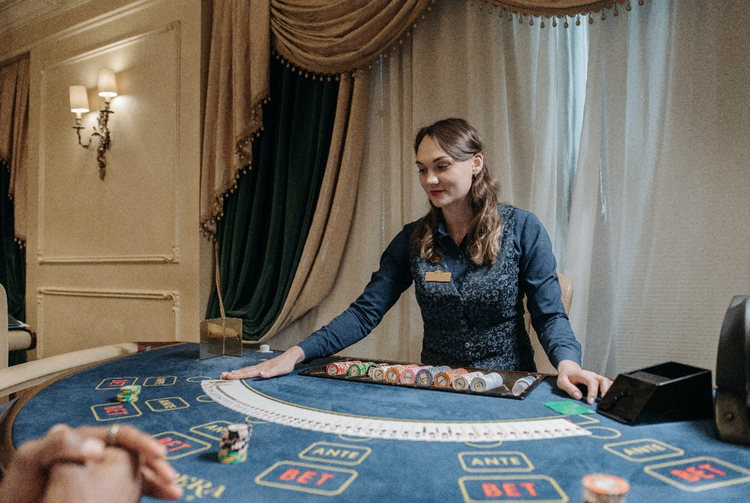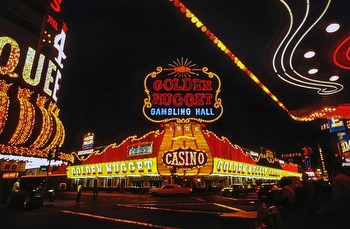How do popular Casino Games like Baccarat and the Gaming Industry impact the UK Economy?

Gambling has risen through leaps and bounds to become one of the UK’s leading industries in terms of revenue generation. A few years back, in 2018, a study showed that the gross gambling yield had hit an all-time high of £14.5 billion (stats via FinSMEs.com). You can understand why the industry was exciting to learn the news and, of course, the UK government, which is entitled to a minimum of 15% of that revenue.
However, without running into the risk of sensationalising gambling, we totally understand that you better understand gambling’s effects on lives if you live in a family that gambles. But having said that, gambling is still an essential industry and it’s amazing how it impacts the UK’s economy. The effects of the industry ripple through many sectors in different ways.
This article will look at how popular casino games like baccarat and the gaming industry affect the UK’s economy. So if you’re thinking of how to play baccarat as your full-time gig, you will be glad to learn there are more like you all over the UK, and you’ll learn what the opportunities are as well as the industry potential.
Taxation Revenue
In 2014, the UK revised its gambling act to allow more wiggling room in the industry. This has seen the online gambling scene proliferate and increase the gaming industry’s profits. However, casinos are not the only ones to benefit, as the authorities have also felt the effects of increased revenues from the sector. And with more and more legal betting operations coming online, these revenue streams will only increase.
On the other hand, gamblers also received some reparations as they now don’t have to pay taxes on their gambling winnings. This continued gaming industry growth will help generate more tax revenue for the economy’s advancement. Gamers will also have more to play with and support their families.
Job Creation

As the gambling industry has grown, its remarkable how jobs have changed in the casino industry. Casinos are massive operations with thousands of staff who help keep the floors up and running as well as serve the guests. Digitization has also created hundreds of high-paying development jobs in the gaming and IT sectors.
On the other hand, thousands of professional gamblers make a living playing on the fools or online forums.
For the longest time, laws around gambling have been strict and highly regulated in the UK and other regions of the world. However, with the recent relaxation in gambling regulations, consumer protection agencies have had to relook their stance on gambling advertising.
Now, gambling operators can reasonably advertise on traditional media and use advertising imagery and messaging that previously would have been impossible. For example, the bingo industry ran a campaign targeting young women by using local TV personalities. The campaign was a huge success and wouldn’t have been possible without the reforms.
Problem Gamblers
As much as gambling is fun and you stand a chance to win big, there is no turning your back on the fact that it’s also addictive and can destroy lives. Many have fallen into a gambling addiction and lost everything. It has also led to homes breaking up and, in some situations, even worst outcomes.
We can avoid this type of suffering if gambling isn’t available, or at the least this easy to access.
Changes in Regulation
As gambling becomes a more accepted part of society, rules and regulations have had to change and adapt to the new outlooks. This has necessitated the creation of new regulations and bodies to deal with gambling matters. One measure the UK government has introduced is the Gambler Aware charity, a body responsible for researching gambling’s adverse effects and how to treat and prevent them.
On the other hand, online casinos have had to shape up and follow strict guidelines set by authorities. This has legitimized the business and moved it from doggy back alleyways to the forefront of business magazines. Now, gaming operators can walk with their heads held high, knowing they are not breaking any laws and are contributing members of society. We will see how regulations change as casinos start accepting cryptos. The blockchain and cryptocurrencies are still a mystery, some popular businessman like Elon Musk and Jack Dorsey see the value of this technology; while others like Bill Gates don’t. He isn’t the only billionaire who avoid investing in crypto.
Tourism
Gambling casinos draw visitors from all over the country as well as other parts of the world, boosting the tourism industry in their respective regions. Visitors need accommodation, transportation, and food when they come for gaming, which boosts the local economy and industries.
Visitors also get a chance to stretch their legs by visiting other parts of the country and partake in other economic activities they would never have if it weren’t for gambling. This creates a ripple effect that resonates in all parts of the economy, either directly or indirectly.
Investments
Gambling pulls investments from international gambling organisations that want to set up shop in the country. They build casinos, hotels and other supporting facilities that create employment and spur growth. Local gambling operators also reinvest their profits into the economy, which helps local public initiatives.
Digitisation of the gaming world has also led to massive investments in the digital sector. For example, you can now access games online because of such investments.
CSR Programs
Gambling operators have set up corporate social responsibility programs that support local communities in different ways. Gambling companies in the UK are some of the most charitable organisations. For instance, the national rotary contributed £1 billion to different charities in the country.
This type of responsible behaviour has helped authorities alleviate pressure on some social issues when operators take on the quests. It has also helped clean up the gambling industry’s image as a responsible entity that only what’s good for the people.
Conclusion
The UK has a long and prosperous gambling history. However, it hasn’t always been cordial, but things have definitely improved. Regulators have looked favourably to the industry, which has responded in kind by stimulating economic growth. And as the public’s perception of gambling continues to change and the relationship between authorities and operators continues to develop. We can expect the gaming industry’s economic impacts to keep resonating.

































